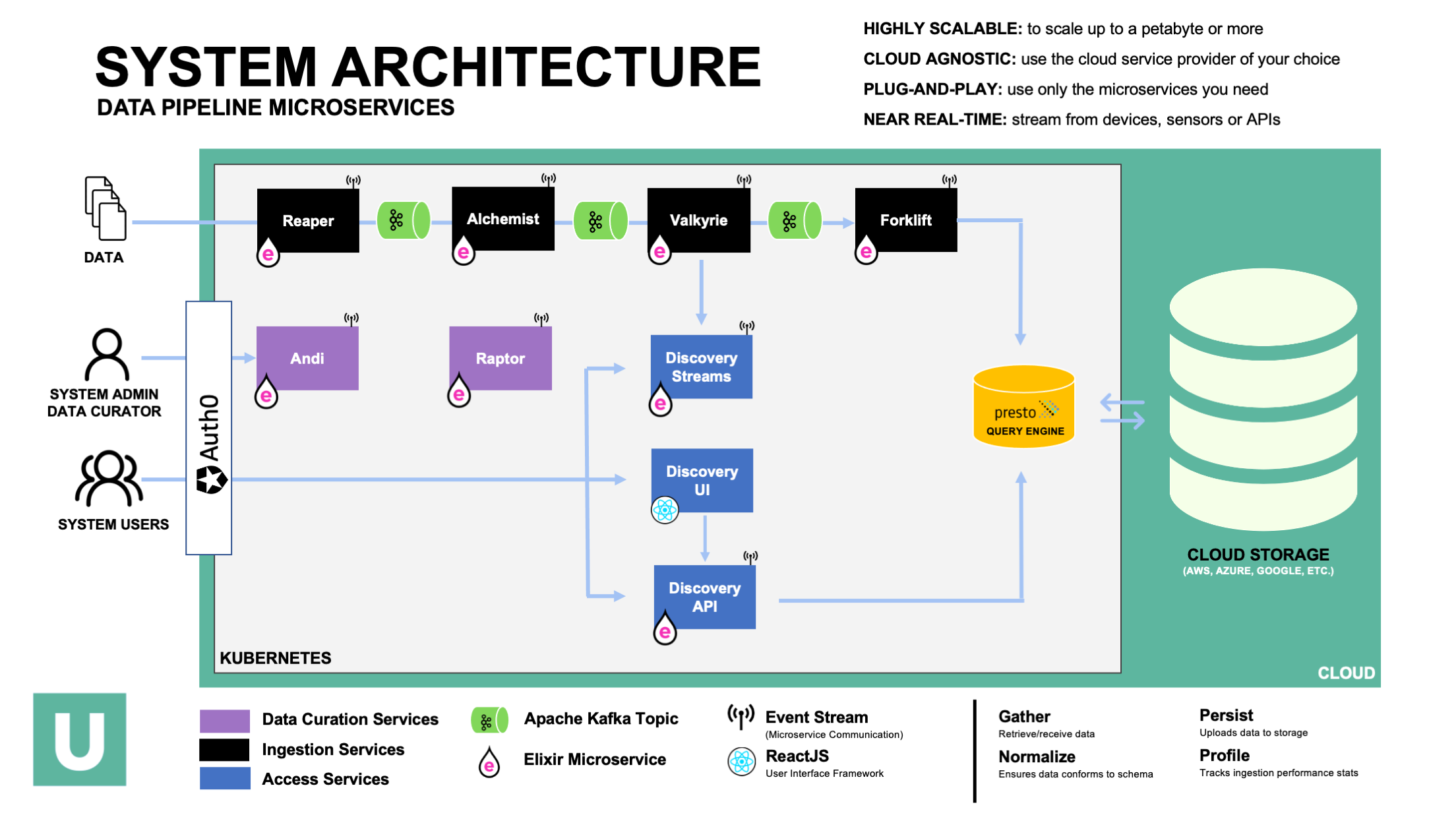The platform is a combination of Elixir micro services custom built to ingest, normalize, transform, persist, and stream data from numerous sources, orchestrated via Kubernetes in any cloud provider or on-prem Kubernetes deployment. The loosely coupled services pass data across the pipeline via Kafka message queues and persist data to any hyper-scalable object store providing the S3 standard. They coordinate and communicate via a single event bus, also running on top of Kafka. The distributed data files are persisted and retrieved via SQL queries processed by the PrestoDB engine. Finally, user access, discovery, and analysis is facilitated by a ReactJS web application user interface, a RESTful API, or a web socket API for streaming data feeds.
| Application | Short Description | Build Status |
|---|---|---|
| Andi | Admin Interface for creating/editing datasets to be ingested | |
| Discovery API | API to search for and query datasets | |
| Discovery Streams | Websocket connection to listen to streaming data | |
| Estuary | Microservice to persist event stream events | |
| Forklift | Microservice for saving data to Presto DB | |
| Reaper | Microservice to retrieve data | |
| Valkyrie | Microservice to validate data structure during ingestion | |
| Alchemist | Microservice to alter data from its original format |
- Elixir - The primary language that all of the microservices are written in
- Docker - All microservices are built as docker images
- Apache Kafka - Communication mechanism between microservices
- Redis - General purpose storage and caching
- Elasticsearch - Used by Discovery API for search
- PostgreSQL - General purpoase storage
- Presto - Big Data storage of ingested data
- Vault - Secure storage of secrets
Setup guide available on our wiki
The microservices written in Elixir use Mix as the build tool.
Each microservice under the apps/ directory has a Dockerfile that can be used to build that microservice individually by running the following command:
docker build .
Additional app specific build steps will be in the relative readme at apps/{app}/readme.md.
- Unit tests can be executed from the root of this repository or a specific application under the apps/ directory
mix test
- Integration tests can be executed from the root of this repository or a specific application under the apps/ directory
mix test.integration
- End to End (E2E) Tests can be executed from the root of this repository.
mix test.e2e
- What is the project and how it works
- What all those application names mean
- Additional learning resources
- A glossary of terms and technologies
- Starting All of the Microservices
Each microservice is released independently and can be found here in the Releases section. All releases will be kept indefinitely.
Versioning conforms to the standard versioning pattern of .., for example 3.0.1. 3 being major, 0 being minor, and 1 being patch.
Patch version increments should introduce no breaking changes to the existing public chart. Docker images/Elixir apps are able to be updated in-place with no changes needed. Minor version increments may require chart changes to function properly. These changes should be reviewed and charts should be adjusted accordingly before updating. Major version increments likely introduce wide-spread or structural changes that require many configuration changes.
Released under Apache 2 license.
